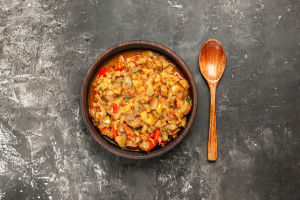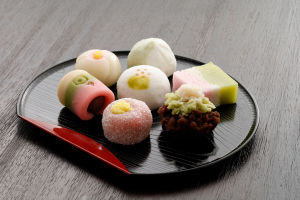Even if you train hard, neglecting pre- and post-workout nutrition can limit your performance potential. Nutrition isn't just about staying full—it's about providing your body with the fuel it needs to perform and recover.
Whether you're an elite athlete or a weekend runner, understanding what to eat around your workouts can help you train harder, recover faster, and stay injury-free. Ready to rethink your training meals? Let's dive in.
The Goals of Pre-Workout Nutrition
Before training, your body needs energy to power through your workout. The primary goals of pre-workout nutrition are:
• To top off glycogen stores (your body's main energy source during exercise)
• To stabilize blood sugar and avoid mid-session crashes
• To prevent muscle breakdown and fatigue
A balanced pre-workout meal or snack can improve endurance, focus, and overall workout performance.
What to Eat Before a Workout
Timing is crucial. Ideally, eat a well-balanced meal 2 to 3 hours before your workout. If you're short on time, a small snack 30 to 60 minutes before can still help.
Meal (2–3 hours before):
• Whole grain pasta or rice with grilled chicken and steamed vegetables
• Quinoa with roasted chickpeas and avocado
• Oatmeal with banana and a spoonful of almond butter
Snack (30–60 minutes before):
• Banana with a small scoop of nut butter
• Rice cakes with honey
• Low-fat yogurt with berries
Avoid high-sugar foods or anything too heavy that may upset your stomach. The key is to choose easily digestible carbohydrates paired with a little protein.
Hydration Before Training
Water plays a vital role in your workout. Dehydration can lead to early fatigue, muscle cramps, and slower reaction time. Aim to drink 400–600 ml of water 2 hours before training. If you're sweating a lot, consider adding electrolytes, especially sodium and potassium, to your water.
The Purpose of Post-Workout Nutrition
After training, your body enters a recovery phase. The goals of post-workout nutrition are:
• To replenish depleted glycogen
• To repair muscle tissue
• To reduce inflammation and soreness
• To support adaptation and growth
The sooner you refuel—ideally within 30 to 60 minutes after your workout—the better your body can absorb nutrients for recovery.
What to Eat After a Workout
Your post-workout meal should include a mix of carbohydrates and protein. Carbohydrates restore glycogen, while protein supports muscle repair and adaptation.
Post-workout meal or snack ideas:
• Grilled salmon with sweet potatoes and broccoli
• Smoothie with protein powder, banana, oats, and almond milk
• Scrambled eggs with whole grain toast and mixed vegetables
• Tuna sandwich on whole grain bread with a side of fruit
Avoid foods high in saturated oils or added sugars, which can hinder recovery.
Recovery Hydration: More Than Just Water
Rehydrating after exercise is essential, especially if your workout was intense or lasted over an hour. Along with water, you may need to replace lost sodium and potassium through sports drinks or natural sources like coconut water or bananas. Monitor the color of your body fluid—it should be light yellow if you're well hydrated.
Supplements: Helpful or Not?
While whole foods should be your main source of nutrients, some athletes benefit from supplements such as:
• Whey protein: Quickly absorbed and supports muscle recovery
• Creatine: May boost short bursts of strength or speed
• Branched-chain amino acids (BCAAs): Help reduce muscle soreness in some athletes
Always consult a certified sports nutritionist or healthcare provider before adding supplements to your routine, especially if you're under 18 or have a medical condition.
Special Considerations by Sport
Not all athletes need the same nutritional strategy. For example:
• Endurance athletes (runners, cyclists) need more carbohydrates to sustain energy levels.
• Strength athletes (weightlifters, sprinters) may need more protein for muscle repair.
• Team sport athletes (soccer, basketball) benefit from balanced meals that support quick energy and recovery.
Tailor your pre- and post-workout meals according to your activity's demands.
Common Nutrition Mistakes Athletes Make
Avoid these common pitfalls:
• Skipping meals before training – leads to poor performance and fatigue
• Eating too close to a workout – causes stomach discomfort
• Not refueling after training – slows recovery and reduces training gains
• Drinking only water post-workout – can result in electrolyte imbalances if sweat loss is high
Conclusion: Eat to Perform
What you eat before and after your workout directly impacts your results. Focusing on balanced meals, hydration, and timing helps your body perform at its best.
Consider which pre- or post-workout meals work best for you, and experiment to find your ideal routine.


